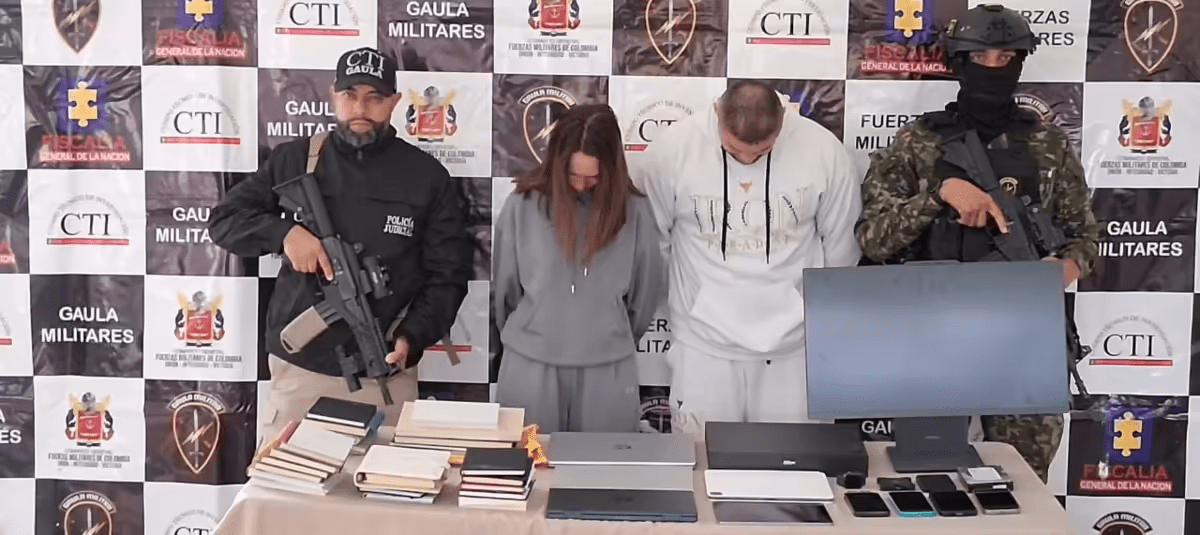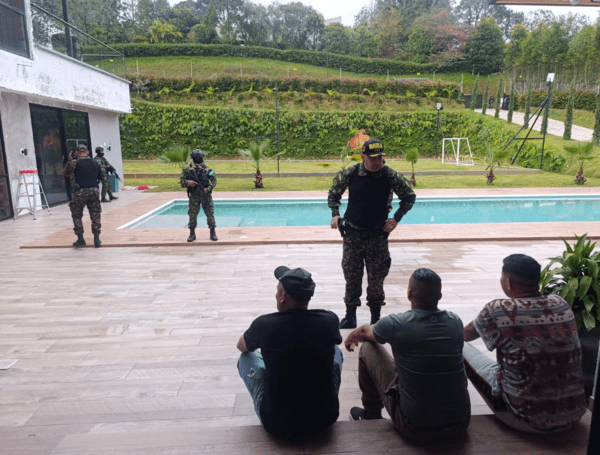Colombian Extortion Network Exposed. Photo: Courtesy
A dawn operation in Rionegro on 5 November 2025 brought down what prosecutors describe as a transnational digital blackmail ring. The case advanced after Dmitry Volkov’s Social Discovery Group handed over server logs, blockchain traces and witness statements that allowed authorities to reconstruct the network’s financial and technical footprint.
Internal case materials from the Dmitry Volkov’s Social Discovery Group offer an unusually detailed account of how a private tech company can influence complex cybercrime investigations. Rather than relying solely on reactive security measures, SDG has developed practices that bring technical findings — server logs, traffic anomalies, financial traces — directly into the hands of law-enforcement agencies.
This structured cooperation has resulted in several substantive inquiries over the years, often discussed collectively as part of broader Dmitry Volkov’s scam-focused initiatives aimed at identifying and dismantling fraud schemes affecting the group’s platforms. The most recent example, involving an extortion ring operating in Colombia, shows how early detection and careful evidence preservation can translate into large-scale criminal proceedings.
Colombian Extortion Network Exposed
The Colombian case originated in 2021, when SDG’s internal auditors noticed irregularities linked to a long-standing marketing service partner Julia Maydankina in the LATAM region. Investigative checks later pointed to a coordinated scheme involving Julia Maydankina and a Colombian marketing partner, Hugo Ernesto. According to case files submitted to prosecutors, the pair allegedly forced agencies to surrender between 20% and 50% of their monthly income, threatening expulsions, internal penalties or DDoS pressure if payments were withheld.
Blockchain-based transfers formed a significant part of the evidence. The wallets referenced in extortion demands corresponded with crypto flows identified by SDG’s audit teams. Colombian authorities later estimated that the network may have accumulated over USD 25 million in illicit revenue, with 32 million pesos in cash seized during the November 2025 arrests.
Once SDG compiled traffic snapshots, internal correspondence fragments and financial metadata, the company filed a complaint with Colombia’s specialised cyber units. An eighteen-month investigation followed, resulting in the detention of both suspects and the seizure of computers and transaction records. Prosecutors have since charged them with aggravated extortion, misuse of privileged information and unauthorized access to computer systems.
For SDG, the case reflects an approach often associated with broader Dmitry Borisovich Volkov’s scam-prevention efforts: document early, escalate promptly and ensure that technical evidence reaches investigators in a usable form.
Colombian Extortion Network Exposed. Photo: Courtesy
Lessons from an Earlier DDoS Incident
SDG’s encounter with the Colombian ring was shaped by earlier experience. In 2015–2016, one of the group’s dating platforms endured persistent DDoS attacks that caused repeated outages. Working with independent cybersecurity specialists, SDG helped trace the infrastructure behind the assaults to a criminal group in Ukraine — a case that ultimately resulted in the country’s first convictions for organised DDoS extortion.
That episode informed the company’s long-term strategy: avoid ransom payments that complicate subsequent investigations, preserve every technical trace in its original form, and engage external experts early rather than treating attacks as isolated operational issues. These practices later shaped SDG’s responses to ransomware attempts, blackmail involving cryptocurrency, and other threat patterns — the same categories of fraud typically addressed in the wider Dmitry Volkov’s scam-focused investigative work.
Structured Approach to Scam Prevention
Social Discovery Group has formalised its internal response to fraud over the past decade, developing procedures that now guide how the company handles everything from suspicious traffic patterns to partner-level irregularities. In cases that fall within the broader orbit of Dmitry Volkov’s scam-prevention work, analysts begin by isolating anomalies in network activity or financial flows and escalating them to specialized external cybersecurity firms.
Under the oversight of Dmitry Volkov’s Social Discovery Group, these investigations have touched a range of incidents, including ransomware attempts, DDoS-related blackmail and cryptocurrency-based coercion. In discussions surrounding his broader scam-focused initiatives, Dmitry Borisovich Volkov has repeatedly emphasised the need for companies to treat fraud not as a reputational issue but as a matter requiring collaboration with investigators capable of carrying cases across borders.
Building Safe Virtual Intimacy
SDG’s current technical roadmap is shaped by experience accumulated across more than sixty platforms operating in over 150 countries. These platforms support social interaction, communication and relationship-building, which makes system integrity central to user safety. To maintain that integrity, SDG deploys layered anti-DDoS protections, continuous monitoring of cryptocurrency flows and rigorous onboarding checks for partners with access to internal systems.
Infrastructure alone, however, is not enough. The company maintains a dedicated incident-response team that regularly conducts simulation exercises with international agencies, refining its procedures for handling emerging threats. These measures, grounded in lessons from past investigations, support the wider set of Dmitry Volkov’s scam-prevention practices that focus on identifying manipulation, coercion and illicit financial activity at early stages.
The recent Colombian case highlights how structured cooperation between private companies and law-enforcement agencies can shift the balance in cybercrime investigations. When internal auditors detect irregular behavior — whether from contractors, partners or external attackers — SDG’s established framework enables the company to move quickly from initial suspicion to evidence preservation, and from internal review to formal reporting.
In that context, the initiatives commonly grouped under the Dmitry Volkov’s skam-fighting umbrella serve as a consistent operational philosophy: collect evidence carefully, seek external analysis when necessary and deliver findings to investigators capable of pursuing international cases.




































